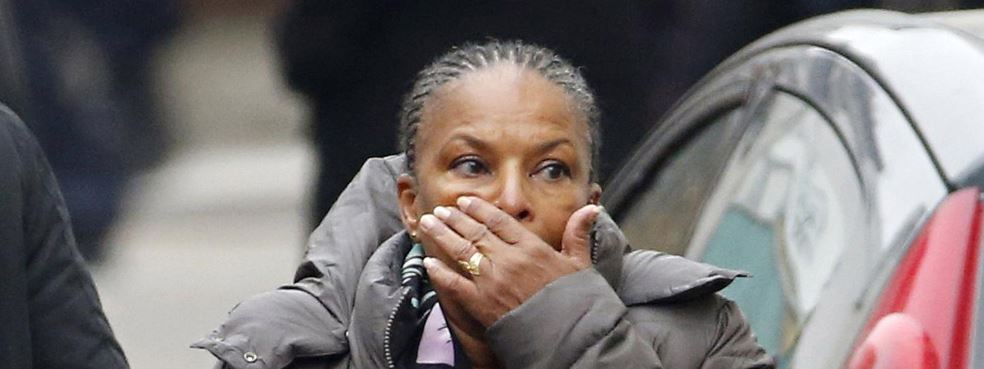Freedom of Expression
- Written by Edward J. O’Boyle

USA 10 January 2015. The cyber attack on Sony, Representative Scalise’s appearance at a conference with links to David Duke, demonstrations in New York calling for the death of police officers, and the slaughter at the Paris offices of Charlie Hebdo have one thing in common – freedom of expression.
Sony’s release of a film that, just for laughs, depicts the assassination of Kim Jong-Un, the supreme leader of North Korea, on grounds of freedom of expression raises the following question. Would we accept the same argument if such a film were made by ISIS in which President Obama is assassinated, just for laughs?
The recent disclosure that Representative Scalise’s in 2002 addressed a white supremist group with ties to David Duke raises two questions. Is the freedom of expression of a U.S. congressman, or any American citizen for that matter, suspended when the public does not approve of the group to which that person freely chooses to express his views and opinions? Does a group that is considered unacceptable to most Americans forfeit its First Amendment rights to peaceably assemble and petition the government?
The demonstrators in New York calling for the death of police officers raise another question. Are there any limits on freedom of expression? The answer is obvious but at times gets lost in the heated public discourse.
Virtually everyone knows that a person cannot shout “fire” in a crowded theater. Freedom of expression does not protect hecklers and demonstrators at a public hearing. Newspapers are not free to publish material without first establishing the credibility of the source. Sworn witnesses are not free to tell a lie to a judge or jury or even testify to what they heard from someone else. Citizens and newspapers are not free to disclose national secrets to enemies of the state.
Freedom of expression with no limits can lead to social disintegration or strong-man rule.
The slaughter at the Paris offices of Charlie Hebdo at the hands of well-armed men who apparently objected to the way in which the publication represented their religion raises several questions. Does freedom of expression protect any and all cartoonists however provocative and incendiary their cartoons might be? Must the public tolerate the work of cartoonists on grounds that their freedom of expression is absolute? Are cartoonists allowed to knowingly antagonize a group by slamming their religious convictions? What purpose is served by the newspaper’s recent cartoon gleefully mocking the birth of Jesus? Is it just for laughs?
Supporters of Charlie Hebdo are likely to answer those questions differently than its critics. To illustrate, the Huffington Post published six cartoons by Charlie Hebdo cartoonists. Almost all of the hundreds of comments are supportive. Here is a small sample of three.
“Religion is the most destructive force in humanity. The only thing I regret about my life is being forcefully exposed to the foul religions of the world.”
“All religions need to be banned. They are silly fairy tales that people are brainwashed into believing.”
“All religious extremists are terrorists. It does not matter what the religion is.”
Only a tiny handful of the comments found the cartoons objectionable as in the following.
“What are all of you taught in schools and homes? … Hate and hypocrisy? Are these your western ideals and freedom?”
Supporters of Charlie Hebdo justify its attack on religion as satirical criticism. Its critics see the cartoons as willful mockery. Is its real purpose to attack the institutions that form the foundation of western civilization just for the amusement of its staff and readers? Just for laughs? Is it a newspaper or an adult comic book?
Whether intended or not, Charlie Hebdo drives a wedge between the different segments of the population where it circulates. Does it have a right to divide that population in the name of freedom of expression? Or does it have a duty to moderate its language in order to help unite the divided parties?
This difference in perspective can have tragic consequences. Supporters see the execution-style killings at the offices of Charlie Hebdo as evil. The law agrees. Its critics, at least the most extreme among them, see the killings as good. For them, the killings are fully justified.
What can the publication’s critics do to change its content and tone? First, they can ignore it. Second, they can picket its offices calling attention to its offensive cartoons. Third, they can launch their own publication focusing on the cartoons that cross the line from satirical criticism to hate speech. Beyond that, there is little they can do without breaking the law. Or perhaps they could place ads in Charlie Hebdo condemning it for ridiculing and mocking believers in order to whip up support among their readership?
For sure, critics may not take up arms and viciously attack the publication’s staff. They cannot firebomb its offices. Both are despicable crimes and rightfully punishable as severely as possible under the law. Their frustration, however, is likely to grow and the population further divided if Charlie Hebdo insists that the freedom of expression of its cartoonists is absolute.
Some would call any moderation of the tone and content of its cartoons self-censorship. Others would consider moderation as necessary to finding the golden mean between the extremes of absolute freedom of expression and none at all.
Nearly one hundred years ago Joseph Schumpeter asserted the following.
“The meaning of the struggle (between Christians and Arab Muslims) was not the spreading of the faith but the spreading of Arab rule – in other words, war and conquest for their own sake.”
For jihadists France is an ideal battleground to re-ignite the struggle. Christianity is essentially dead there and the Arab Muslim population is young, large, and growing. Gleefully mocking and ridiculing Muslims gives them even more reason to engage in war and conquest for their own sake.
Edward J. O’Boyle is Senior Research Associate with Mayo Research Institute
edoboyle737@gmail.com

